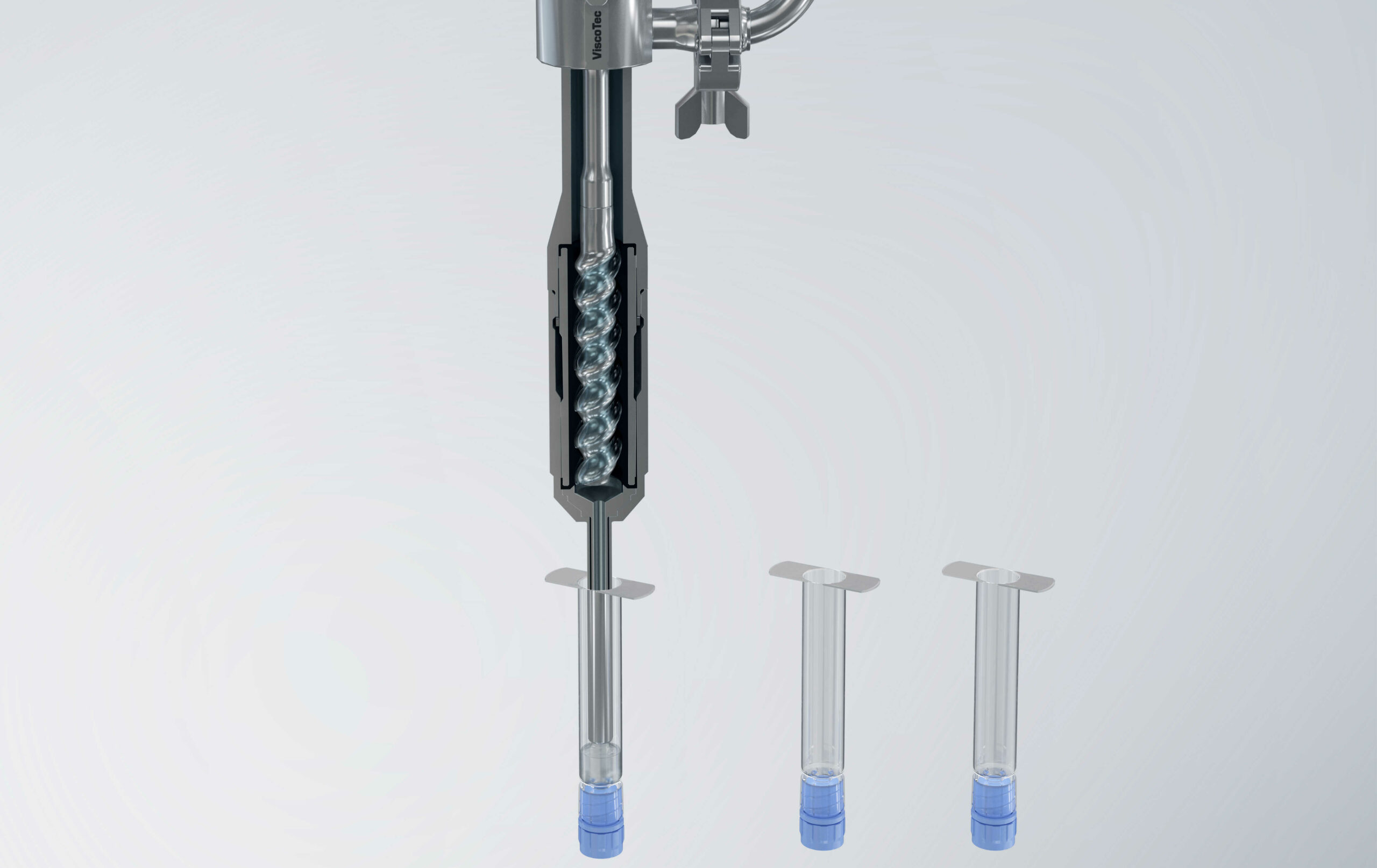Not just for emergencies: proven technologies ensure precision and large production quantities
According to the Federal Statistical Office of Germany, approximately 25% of Germans regularly take medicines on a permanent basis. Some people even take three or more different types of medicine. Around 7.5 million people who are part of this group self-administer their medicines, for example in the form of insulin[1].
In recent years, medical research has made huge progress with regard to the application of the active ingredients: Today, affected individuals have access to treatments such as monoclonal antibodies[2], corticoids or medical cannabis[3],[5] to give them a better quality of life, for example in the case of allergic asthma or palliative treatment. In such cases, it is particularly important to use a light dosage, e.g. with a single-use syringe. Modern painkillers can also be administered subcutaneously via an injection, though this should ideally still be done in an operating room. The wound solution combines a local anesthetic and an NSAID to provide pain relief through prolonged drug release. Such painkillers are indicated for somatic post-operative pain in small to medium-sized surgical wounds in adults.
These examples illustrate the enormous advances in drug research, which aims to improve compliance for patients and relieve the burden on medical staff.
It’s an aspect that is particularly relevant in light of demographic changes and the increase in chronic diseases[6].
It can be assumed that pharmaceutical companies and contract manufacturers will need to expand their production capacities in the long term or adapt processes in order to meet increasing demand. Although such capacity expansions have not taken place yet, experts assert that Germany will nevertheless need to follow suit to maintain or expand its position in relation to international competitors. Such conditions also necessitate the use of state-of-the-art manufacturing technologies.
For example, special dosing systems are required for pain reduction medicines or medical cannabis, since cannabinoids in the form of CBD or THC have completely different properties that need to be taken into account for dosing and bottling. While cannabidiol (CBD) takes the form of a viscous oil at room temperature and is easy to handle, tetrahydrocannabinol (THC) is solid at room temperature. THC must also be handled in a manner that does not expose it to oxygen.
These three current examples illustrate the importance of dosing systems when it comes to scaling up production from the laboratory to series manufacturing, and peristaltic or rotary piston pumps are not the first choice in terms of technology. The ViscoTec endless piston technology exhibits no loss of quality, even with large quantities of highly viscous liquids. Rather, it enables a precise, pulsation-free flow that preserves the product. With a flow rate of 0.2 to 700 ml per minute, the dispensers can be deployed flexibly: In addition to a Luer lock, slip syringes from 0.2 ml to 50 ml can also be filled with a filling accuracy of +/-1%. Depending on the medicine, the net dosing time may be less than one second per syringe. Controlled thread breakage ensures exact dosing quantities and therefore economical work even at high quantities – an aspect that will become increasingly important going into the future.

[1] https://www.aponet.de/artikel/selbst-spritzen-keine-angst-21869
[2] https://www.apotheke-adhoc.de/nachrichten/detail/pharmazie/xolair-patienten-duerfen-selbst-spritzen-omalizumab/
[3] https://www.faz.net/aktuell/rhein-main/wirtschaft/eurox-pharma-eine-spritze-voller-cannabis-17982888.html
[5] https://sanitygroup.com/2022/08/10/pressemitteilung-vayamed-cannakits-ermoeglichen-neue-applikationsformen/
[6] https://www.stiftung-gesundheitswissen.de/presse/immer-mehr-menschen-mit-chronischen-erkrankungen-ueber-jahrzehnte-beeintraechtigt
